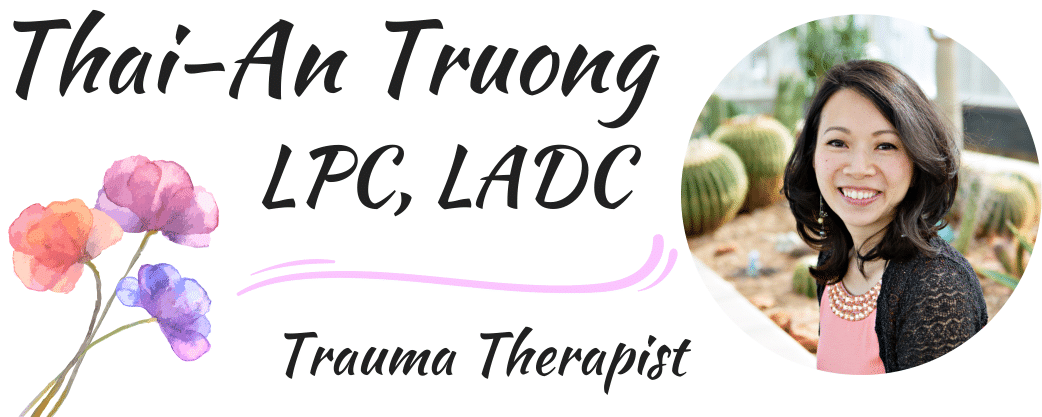Improve Your Mood in Postpartum Depression (Part 2) - The Interpersonal Treatment Model
/It can be hard to be in a great mood when our relationships aren't going well.
In my postpartum moms therapy group this week, we are learning the 5 Secrets of Effective Communication to help improve communication in all relationships, which then often helps to improve our mood.
It'll take your willingness to let go of focusing on what the other person is doing wrong and solely focus on shifting you. Sometimes this doesn't feel fair, and it's understandable to prefer to continue to focus on how the other person can change, because there's a lot of truth in that.
However, if you're tired of waiting for change from the other person, and you're ready and willing to work on changing you to improve your relationship, then the 5 Secrets of Effective Communication are for you.
Example: Your spouse tells you, "You're so controlling."
🔸1) Disarm: In this step, you work to find truth in what the other person is saying, even if it feels unreasonable and unfair. Then you express how you can see their truth in a genuine way.
This goes beyond agreeing to disagree. It's working toward finding what you can agree with in their statements. It is the most powerful but the most challenging communication tool to learn. We often much prefer to get defensive, counterattack, or let them know how right we are. It's human nature to protect our ego. It takes killing our ego to effectively use the disarming technique.
E.g., It's hard for me to hear that because you're right; I was trying to control you instead of hearing you out. I really want to work on changing that.
🔸 2) Thought/Feeling Empathy: Repeat their thoughts in a natural/non-robotic way.
E.g., I wonder when I'm controlling, if it annoys you or even pisses you off. I get annoyed with myself too when I become that way.
🔸 3) Inquiry: Ask gentle, probing questions to open them up, even when it's hard to hear their perspective. We often rather shut them down, but this can help a person feel like you care to hear them out.
E.g., Is that how you've been feeling? What has it been like for you?
🔸 4) I Feel: Share your feelings openly and directly, instead of indirectly through tone and nonverbals. It's easier to give the silent treatment or to express anger through your tone. But when you can share feelings directly, it decreases confusion and lets the other person in. This is a very vulnerable step that people often avoid.
E.g., I feel embarrassed when I look at my controlling pattern; When you said that, I felt angry and defensive. I also feel sad that we continue to get into arguments.
🔸 5) Stroking: Despite anger and any other negative emotion, you bring in an attitude of warmth and respect, even in the heat of the moment.
E.g., I want our relationship to get better. I want us to get closer again. I care about you and our relationship getting better. I want to hear you out. You're the most important person to me, etc.
💖 You can practice this yourself by thinking of a specific moment of conflict with another person with whom you want to get closer. Write down one thing they said. Then write down one thing you said back. Imagine how you'd feel being on the receiving end of your response. Then revise your statement using the 5 secrets of effective communication, labeling each sentence with at least one of the techniques. Write your response over and over again until it feels natural. Share it with a friend to get their feedback before you engage in trying to resolve the conflict again.
BONUS: Try this empathy exercise to bring closeness between you and your partner. Rate how close you feel to your partner now from 0-100, with 100 being completely close. The write a letter from your partner to you. Make sure you do your best to step into your partner's shoes. Share their honest feelings with you, including anger and other vulnerable ones. Share what they love about you. Share what they need from you at this time and why.
For more practical tools to improve your communication and relationships, check out the book Feeling Good Together by Dr. David Burns:

